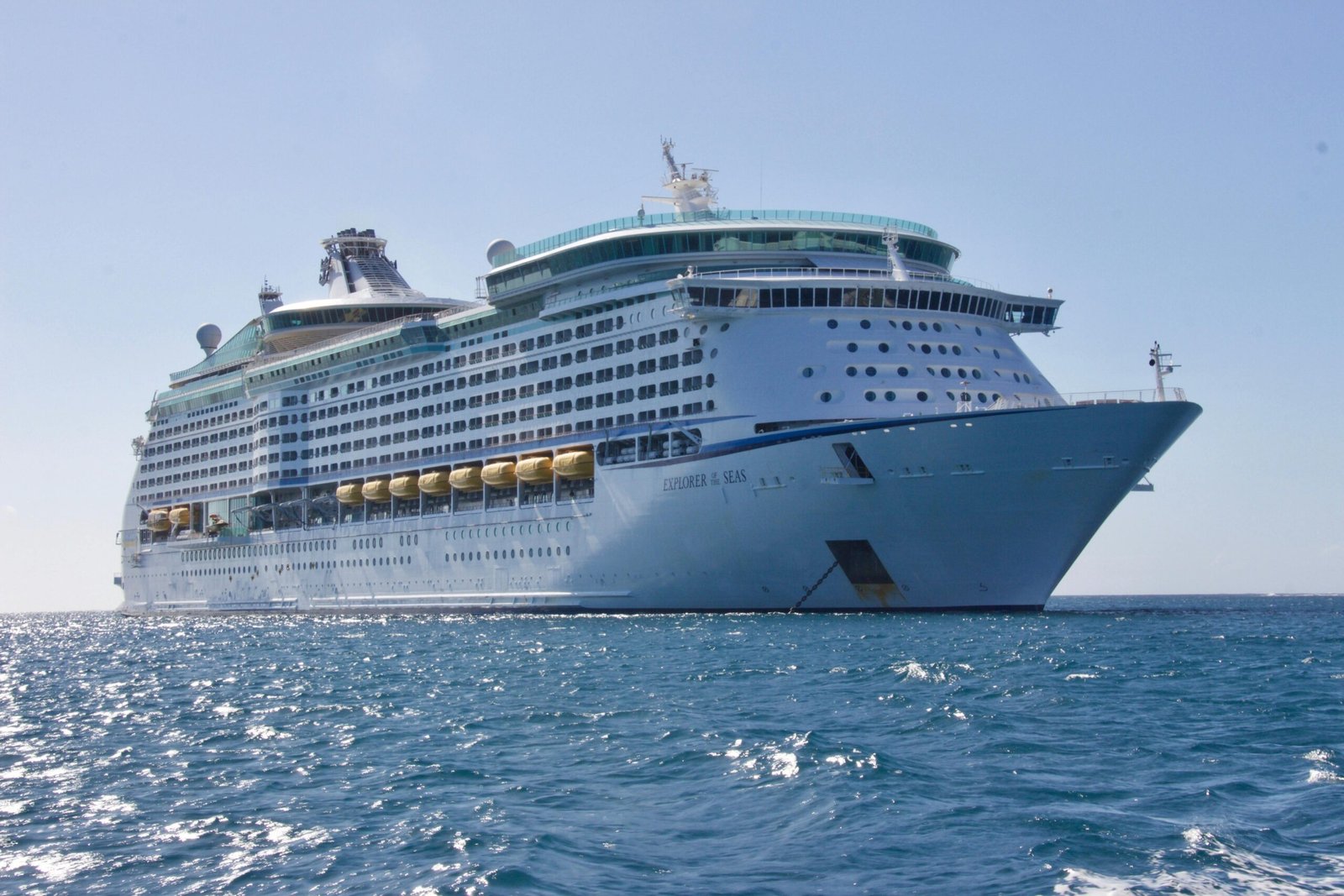Cruise Ship Compensation Claims
Cruise vacations are all about relaxation, excitement, and a lifetime of memories at sea. But unforeseen complications—delay, cancellation, or accidents on board—can ruin your vacation and frustrate your time, money, and sanity. Cruise ship claims for compensation are in place to protect holidaymakers when things turn awry. No matter where you sail from Southampton or Miami, you’re owed rights under UK, EU, and US law, as well as those of your cruise company. This manual tells you what you’re owed, how to claim it, and how to do it safely.
Why Compensation on a Cruise Ship Is Important
Cruise holiday is an investment—a ticket, air ticketing, pre-and-post cruise, tours, and in-port cost. If a cruise company misses the scheduled itinerary or quality of service, compensation allows you to reimburse lost expenses and holds the company accountable. Being aware of your rights gives you enough clout to:
- Recover losses when ports or shore excursions are missed
- Recover refunds for cancelled cruises
- Get compensation for delay or injury onboard
- Get reimbursed for unplanned delay
Voice-search sample: “How do I get reimbursed if my cruise is delayed?”
Common Cruise Reimbursement Claims
Delayed Departure or Arrival
Mechanical problems, port delays, inadequate staff, or bad weather may delay departures or arrivals. The reimbursement may include:
- Refund of partial or entire cruise fare
- Future cruise credit onboard
- Refunding other transportation or lodging expenses
Cancellation of Cruise
When a cruise line skips a whole voyage—most often because of operational or safety issues—customers are entitled to:
- Full refund of cruise fare and taxes
- Repayment of advance expenses (air, hotel stays, transfers)
- Alternate cruise credit (if applicable)
Missed Ports of Call
When your cruise vessel skips an itinerary port—maybe because of weather or mechanical problems—you are entitled to:
- Pro rata refund for missed days
- Spending credits onboard
- Compensation for pre-booked shore excursions
Cabin Malfunctions
Faulty air condition, plumbing, or electrical systems detract from your in-transit comfort. Compensatory alternatives may include:
- Upgrade to cabin (if available)
- Partial refund or onboard credits
- Alternative accommodation (on-shore or on-board)
Personal Illness or Injury
Slips, falls, food poisoning, or medical emergencies may require:
- Medical cost reimbursement
- Pain and suffering compensation
- Lost wages (where applicable)

Lost or Damaged Baggage
Not as frequent at sea, mis-handled baggage claims are covered by international conventions. You can claim:
- Value of lost/damaged items (to some limits)
- Replacement cost of goods incurred beforehand
Your Rights Under UK & EU Maritime Passenger Legislation
Key Entitlements
- Brief, written passenger contract with details of itinerary
- Compensation for delayed departure if more than 90 minutes on domestic voyages
- Provision of food and accommodation if overnight stranded
- Rerouting or reimbursement if the vessel leaves the voyage
EU Directive High Points
- Applicable for voyages embarking from EU ports or on ships flying an EU flag
- Maximum rising compensation for length of delay (i.e., 25%–100% of fare)
- Duty of care: food, drink, communications, and accommodation as necessary
Brexit Impacts
After Brexit, UK left such protection within national law. Always find out if your port of embarkation is EU or UK jurisdiction for some rights.
Voice-search example: “What is the process for claiming cruise ship compensation in the UK?”
Your Rights Under US Law
The United States has no specific cruise compensation law as EU261 for airlines, yet a number of rules and conventions govern:
Federal Laws & Conventions
- Cruise Vessel Security and Safety Act: Emphasizes crime prevention and safety—indirectly substantiates claims arising from onboard occurrences.
- Montreal Convention: Applies to international air transport of passengers and bags, with a maximum of ~US $1,800 for damage or loss of baggage and certain delay claims.
- Carriage of Passengers Act: Entitles negligence for death or injury—applicable for actions in personal injury.
Cruise Line Contracts
Your ticket contract (also referred to as “transportation contract” or “ticket contract”) says:
- Limitation of liability clauses
- Notice periods for claims
- Required documentation and deadlines
Skim it through to find claim deadlines (usually 6–12 months).
Step-by-Step Claims Procedure
Proper filing enhances your chances of a favorable result. Follow these steps:
1. Read Your Ticket Agreement
- Take note of claim deadlines and document requirements
- Locate cruise line’s designated claims address
2. Gather Evidence
- Boarding passes and travel documents
- Photos
- Delays, cabin issues, or injuries
- Receipts for incurred expenses (hotels, taxis, medical)
- Witness statements (other passengers, crew)
3. Submit Your Complaint in Writing
- Use official claim form of cruise line where available
- Include concise, clear description of the problem
- State requested compensation (refund of fare, photocopies of attached receipts)
- Keep duplicate of submission and correspondence

4. Follow Up
- Give cruise line their preferred response time (usually 30–90 days)
- Send polite reminders of timelines
- Use customer relations or executive suites if necessary
5. Refer to Alternative Dispute Resolution (ADR) or Court
- Most cruise lines join ADR schemes—check if your claim is covered
- Small claims court for a last resort for lesser amounts
- For serious personal harm or serious contention, retain the services of a maritime attorney
Voice‑search example: “Can you sue a cruise line for missed ports?”
Tips for a Stronger Claim
- Act quickly: File within contract time frames to prevent automatic denial.
- Be cautious: Give dates, times, deck and cabin numbers, crew members’ names.
- Be courteous: Business tone encourages cooperation.
- Segregating apart cost tracking: Avoid mixing claim-related and personal charges.
- Certified mail usage: Provides an auditable paper trail.
Compensation Amounts
Compensation depends on cruise line, itinerary, and extent of the issue. While costs are not measured on a single scale, travelers usually get:
- Delays (4–8 hours): US $50–US $200 onboard credit or prorated refund
- Missed port: 5%–20% nightly fare per day lost
- Cancellation of voyage: 100% refund plus up to 10% punitive credit
- Minor cabin problems: US $25–US $100 credit per impacted day
- Personal injury: Payment of medical bills and payment for pain and lost wages
Always refer to your contract for particular limits.
When to Engage a Lawyer
Most cases resolve with the cruise line directly, yet legal counsel may be prudent if:
- Your claim is in excess of US $5,000–US $10,000 and contested
- You have experienced severe injury or wrongful death of a relative
- The cruise line refuses to negotiate in good faith
Maritime attorneys deal with cases of Passenger Claims Act, Montreal Convention, and negligence cases under US federal law.
Frequently Asked Questions
What are the rights of cruise passengers regarding delays?
Subject to EU Directive 1177/2010 and English law, you are also entitled to 25% to 100% refund on the cost of your ticket for delays over 90 minutes, as well as assistance like food and overnight accommodation where appropriate. In the US, delay payment is subject to your ticket agreement and could be governed by the Montreal Convention for partial refund.
What is the time limit for requesting compensation?
Review your cruise ticket contract. Most of them require written notice between 15 days and 12 months after the date of occurrence. EU/UK law will pre-empt and require a two-year minimum for personal injury claims.
Am I entitled to recover missed shore excursions?
Yes. In the case of an omitted port with no fault of your own, you are entitled to a pro-rated refund for the day and reimbursement for an advance booked excursion fee.
Will travel insurance cover cruise compensation?
Travel insurance occasionally reimburses in case of cancellations, delays, and certain medical expenses. But they are not insurance claims with the cruise company. Always report both of them to your insurer and cruise line independently.
What happens if my claim is rejected?
First, request a written itemized explanation. If unhappy, bring it to the cruise line’s ADR provider or small claims court. For extensive injuries, consult a maritime attorney.
Is onboard credit equivalent to cash?
No. Onboard credit may be used only for charges and services on the current cruise or for a future reservation. It can’t be cashed.
Are policies varied across different cruise lines?
Yes. Always refer to the Passenger Ticket Contract or Contract of Carriage on your ticket. Scan for subheadings with “Refunds,” “Liability,” and “Force Majeure.”
Conclusion
Claims for compensation against cruise ships cater for holidaymakers when something goes awry with holiday plans. Departing from Southampton or Miami, you’re protected by legal rights and contractual right under UK, EU, and US legislation. Learn the standard claims, good evidence, and stay on the right path, and you will receive the pay-out you are entitled to. Move fast, rush through paperwork, and be professional at all times. Safe journey—and easier sailing next time, maybe!
